Jerome@Camargo
Grantees
(2024–2026)
Learn more about the program, or see grantees from 2026–28, 2023, 2020, or 2019.
The 2024–2026 Jerome@Camargo Residents are:
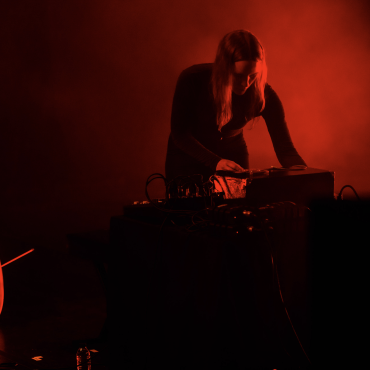

Leila Bordreuil is a French American cellist, composer, sound artist, and community organizer based in Brooklyn, NY. Her music accesses concepts from free jazz, contemporary classical, noise music, and other experimental traditions but adheres to no single genre. Driven by a fierce interest in resonance, pure sound, and inherent texture, Leila challenges conventional instrument practice through extreme extended techniques and amplification methods. Her compositions frequently incorporate sound-spatialization by way of site-specific pieces and multichannel installations. Leila’s body of work has grown from and is embedded in New York’s underground music scene. When she is not performing, she is a dedicated community organizer, programmer, producer, and sound engineer in New York’s DIY music scene. Leila’s work has been showcased internationally, including at The Whitney Museum, MoMA PS1, Lincoln Center, The Kitchen, Issue Project Room, Barbican (London), Berlin Atonal, Art Basel (Switzerland), Le Guess Who (Utrecht), Bozar Museum (Brussels) and countless DIY basements across the USA and Europe. Leila received a 2021-2023 Jerome Hill Artist Fellowship in music.
At Camargo, Leila will be researching the physics, philosophy, aesthetics, and spirituality of “resonance,” in tandem with her practice of feedback and site-specific composition. She will be working with Marseille-based neuroscientists to study the perception of resonance and investigate the “acoustic archeology” of three medieval Cistercian abbeys in the Provence region.
Photo by Victoria Alexandrova
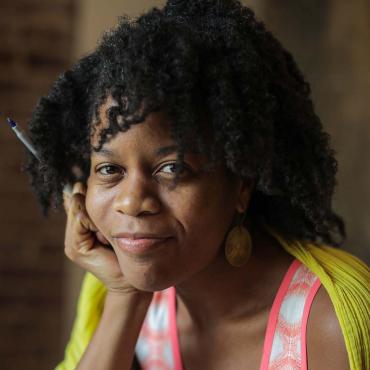

Ama Codjoe is the author of Bluest Nude (Milkweed Editions, 2022), winner of the Lenore Marshall Poetry Prize, and finalist for both the NAACP Image Award for Outstanding Poetry and the Paterson Poetry Prize; and author of Blood of the Air (Northwestern University Press, 2020), winner of the Drinking Gourd Chapbook Poetry Prize. She has been awarded support from Bogliasco, Cave Canem, Robert Rauschenberg, and Saltonstall Foundations, as well as Callaloo Creative Writing Workshop, Hedgebrook, Yaddo, Hawthornden, MacDowell, and the Amy Clampitt Residency. Among other honors, Ama has received fellowships from the Rona Jaffe Foundation, the National Endowment for the Arts, the Bronx Council on the Arts, and the New York State Council on the Arts/New York Foundation for the Arts. Ama was the 2023 Poet-in-Residence at the Guggenheim Museum and is the winner of a 2023 Whiting Award. She received a 2021-2023 Jerome Hill Artist Fellow in literature.
During her Camargo residency, Ama will write poems toward a future full-length collection. She looks forward to spending time in a community composed of international artists that value cross-disciplinary exchange and craves the kinds of articulations, offerings, and dialogues made possible by a residency environment like Camargo.
Photo Credit: Jamie Harmon
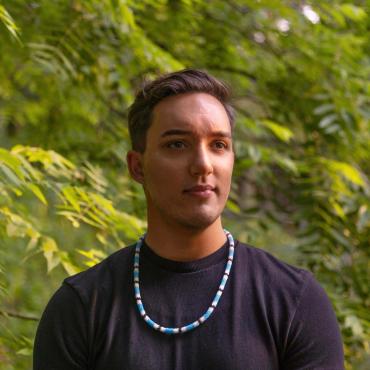

Carson Faust is the debut author of When the Living Haunt the Dead (Viking, 2025). He is two-spirit, and an enrolled member of the Edisto Natchez-Kusso Tribe of South Carolina. Previously, he received artist fellowships from Jerome Foundation and the McKnight Foundation. His fiction has appeared in TriQuarterly, Passages North, ANMLY, and Waxwing Magazine, among other journals, and has been anthologized in Never Whistle at Night: An Indigenous Dark Fiction Anthology (Vintage, 2023). Carson received a 2021-2023 Jerome Hill Artist Fellowship in literature.
During his residency, Carson will research French colonial violence in the 1700s, which displaced the Natchez (Nv’ce) people—forcing some of them to leave their homelands in present-day Mississippi and seek refuge in present-day South Carolina—within the context of his second, in-progress horror novel that delves into themes of invasion, extraction, and the simultaneous appropriation and erasure of Native culture.
Photo by Jaida Grey Eagle
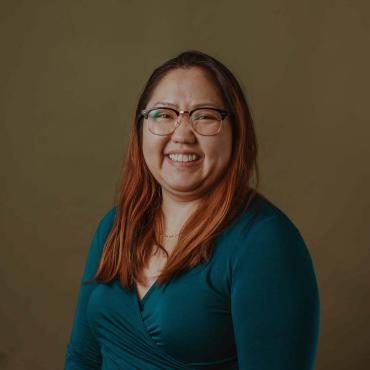

Joua Lee Grande is a filmmaker and community connector with a deep commitment to elevating underrepresented voices. Her work has been featured on WORLD Channel, PBS Digital, CAAMFest, and in the PBS Short Film Festival. Her short film On All Fronts received an Honorable Mention from CAAMFest's Loni Ding Award for Social Justice Documentary, is part of a series that won a Silver Anthem Award and received a Daytime Emmy nomination. Joua was a True/False Confluence Fellow (2023), a PBS Accelerator Fellow (2023), a MediaJustice Network Fellow (2021), and a Diverse Voices in Docs Fellow (2019). She was a news editor at WCCO TV 4 News and has over a decade of experience working in nonprofits. She has also led media education programs in the Twin Cities, supporting underrepresented community members to tell their own stories. Joua’s work reflects her passion for storytelling and her strong commitment to social justice. Joua received a 2021-2023 Jerome Hill Artist Fellowship in film, video and digital production.
During her residency, Joua will develop new works and connect with a Hmong French community in southern France. Building relationships with the Hmong French and learning their unique refugee experience will inform the development of a potential new work exploring the community's spread from Lao mountainsides to cities across the globe.
Photo by Bryan Hempstead.
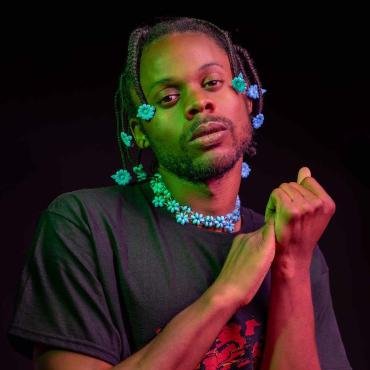

Prince Harvey is a NYC based artist, musician, and producer most famously known for recording his first album in an Apple Store. He spent most of his childhood on the tiny island of Dominica where he started writing songs at the age of eight, influenced by late 90s rappers. Since his family’s move to New York when he was 14, he has been praised by both mainstream and underground audiences for his alternative hip-hop compositions and productions. In 2017, he released an EP, Golden Child, followed by STAY BOLD: 100 DAYS 100 SONGS, premiering a new song every day for 100 days as a protest against Trump. In 2018, Prince Harvey was an artist in residence at Harvest Works and a commissioned artist at The Shed, where he began work on a new music album and series of short films. He received a 2021-2023 Jerome Hill Artist Fellowship in music.
Upon the release of his first album, PHATASS, he was mentioned by major music and news publications. Prince Harvey's music has been featured in The New York Times, Noisey, Billboard, VICE, The Daily Beast, The Guardian, The Fader, and Afropunk, among many others.
Prince Harvey will use this residency at Camargo to further explore intersecting French and English dialects, searching for fluid ways to the infuse his work with Dominican Patois and Creole language expressions passed on to him through his upbringing in Dominica (a now post-colonial island once occupied first by France and then by Great Britain), using his art as a bridge between these multiplicities of thought, understanding, and history.
Photo by Gretchen Robinette
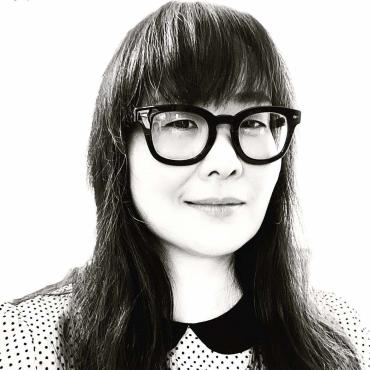

Su Hwang (she/her/hers) is a poet, activist, stargazer, and the author of Bodega (Milkweed Editions), which received the 2020 Minnesota Book Award in poetry and was named a finalist for the 2021 Kate Tufts Discovery Award. Born in Seoul, Korea, she was raised first in New York and then called the Bay Area home before transplanting to the Midwest. She works with the Minnesota Prison Writing workshop and is cofounder of Poetry Asylum, with poet Sun Yung Shin. Su received a 2019-2021 Jerome Hill Artist Fellowship in literature.
During the Camargo residency, Su will complete her second poetry collection titled ARKS. She will also conduct research for a new experimental, hybrid text, Invasive Me. Fusing personal essay, memoir, and prose poetry, this work reflects on how various flora and fauna—like the Spotted Lantern Fly and Emerald Ash Borer—have impacted the places she’s called home, and how through certain language and positionality, human beings are invariably juxtaposed, classified, and othered as “invasive.” In and around Cassis, she will examine the effects of blue crabs that are reportedly wreaking havoc along the French Mediterranean.
Photo provided by the artist.
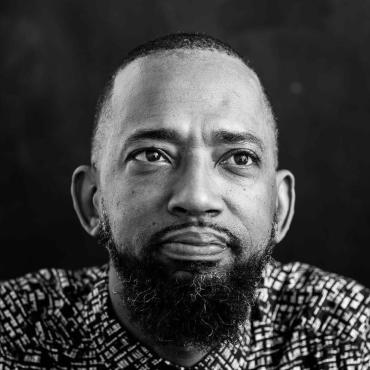

Modesto “Flako” Jimenez is a Dominican-born, Bushwick-raised, multi-hyphenate artist. His work exists in and explores the intersections of identity, language, mediums, cultures, and communities in his personal life and beyond. Flako’s recent work includes Taxilandia, a multifaceted Bushwick community tour and poetic performance experienced from the back of a taxi cab. This work received a New York Times’ Critics Pick in 2021. Flako is the founder of ¡Oye! Group, a nonprofit that serves as an incubator for artists both native and immigrant to New York City. Flako has been selected as a Princeton Hodder Fellow for 2023-2024 and received a 2021 Foundation for Contemporary Arts award in performing arts and theater. He is currently working on Mercedes, a multi-disciplinary art experience exploring the relationships between matriarchy and ancestors, familial bonds and inherited trauma, and how our identity can impact our mental health. Flako received a 2021-2023 Jerome Hill Artist Fellowship in theater.
During this residency, Flako plans to explore local stories from immigrants of different ages and generations in the Aix-Marseille-Provence area, expanding his understanding of immigrant experiences and collecting new stories on this area’s unique cultural diversity. While his work has explored the Caribbean and Latin American immigrant experience in the United States, he is interested in gaining first-hand knowledge of migrant experiences in a European context. He hopes to find points of connection that broaden the scope of his work and contribute to a more nuanced understanding of the interconnectedness of immigrant experiences.
Photo by Maria Baranova
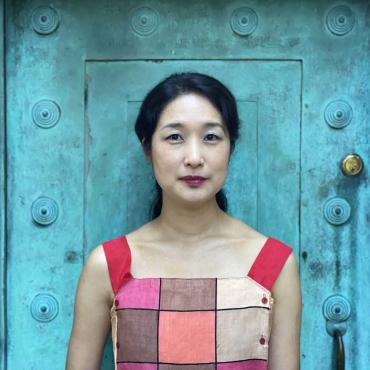

Gamin is a distinguished soloist who tours the world performing both traditional Korean music and cross-disciplinary collaborations. Gamin plays three traditional wind instruments, and is a designated Yisuja, official holder of Important Intangible Cultural Asset No. 46 for Court and Royal Military music. Re-inventing new sonorities from ancient, somewhat restrictive, musical systems, Gamin has received several cultural exchange program grants from Asian Cultural Council, Ministry of Culture, and Republic of Korea. Gamin has collaborated in cross-cultural improvisation with world-acclaimed musicians presenting premieres at Roulette Theater, New School, and Metropolitan Museum. Gamin was a featured artist at the Silkroad concert, Seoul, 2018, performing on-stage with Yo-Yo Ma. Gamin’s scheduled Carnegie Hall début as featured soloist with the Nangye Gugak Orchestra was postponed due to COVID-19. She received a 2021-2023 Jerome Hill Artist Fellowship in music.
During her residency, Gamin is excited by the opportunity to engage with an international community of artists and the inspiration of the unique environment at Cassis. She will work on a new composition focused on developing and extending repertoire based on sanjo tradition, a form of improvised multi-movement solo genre.
Photo provided by the artist.
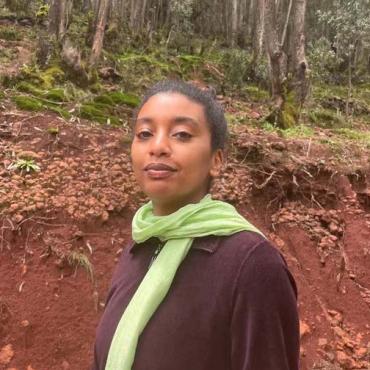

Hasabie Kidanu is a visual artist working in printmaking and film animation. Her films have been screened at the Rotterdam International Film Festival, MONO NO AWARE, Jan Van Eyck Akademie, and Film Madrid. She is one-fourth of Digital Ancestors: an independent publishing co-operative based in Brooklyn, New York, and is currently a lecturer of printmaking at the Yale School of Art. Hasabie received a 2019-2021 Jerome Hill Artist Fellowship in visual arts.
During her time at Camargo, Hasabie will develop her new work Prince Ruspoli’s Turaco, an experimental animation set in 1893 within the sub-tropics of eastern Ethiopia. The protagonist, an endangered Turaco bird, tells the tale of its impending extinction while contemplating the relationship between colonial exploration, habitat loss, and diversity. Hasabie plans to spend time in the Calanques National Park and the Museum of African, Oceanic and American Indian Art, studying, meditating, obsessing, and drawing the anatomy and behavior of birds along with flora and plant-life to further the detailed observation practices that fuel her work as an animator.
Photo by Wes Larios
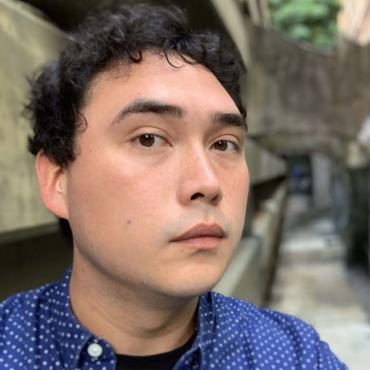

Simon Liu’s practice centers on cataloging the rapidly evolving psychological and political landscapes within his homeland of Hong Kong through alternate documentary forms, abstract diary films, video installation, and 16mm projection performance. His work has been exhibited at institutions including MOCA LA, SFMoMA, The Shed, PICA, Tai Kwun Contemporary, Everson Museum, Moderna Museet, and is in the permanent collections of MoMA and the M+ Museum. Additionally, his work has been featured in film festivals including New York, Berlin, Toronto, Sundance, Rotterdam, San Francisco, Melbourne, Edinburgh, Jeonju, BFI London, and Hong Kong. Profiles of his work have been featured in Art in America, Cinemascope, New York Magazine, Hyperallergic, and MUBI. Liu is a teacher at Cooper Union, a member of the artist-run film lab Negativeland and is currently editing his first feature film Staffordshire Hoard. Simon received a 2019-2021 Jerome Hill Artist Fellowship in film, video and digital production.
Simon’s focus at the Camargo Residency will be work on a series of 35mm short films utilizing meticulous frame-by-frame animation techniques on physical photochemical materials, and addressing new realities of misinformation, digital consciousness, and cultural disappearance.
Photo provided by the artist.
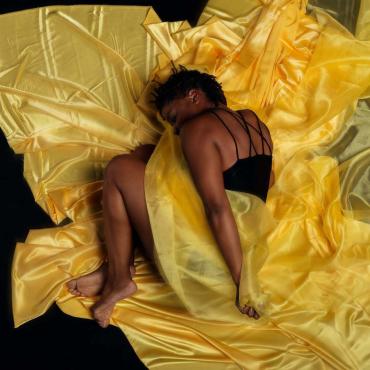

Leslie Parker is a dance artist, director, improviser, educator, and performer born in the traditional homeland of the Dakhóta people also known as Twin Cities, MN. Her multiple home/art-bases mainly include the lands of the Lenape peoples (Brooklyn, NY), and Saint Paul, MN. Leslie holds a BFA from Esther Boyer College of Music and Dance at Temple University and an MFA in Dance from Hollins University in partnership with the Künstlerhaus Mousonturm, The Frankfurt University of Music and Performing Arts, and The Dresden Frankfurt Company in Frankfurt, Germany. As a dance creative, Leslie highlights unique individual contributions, digs into collective memory to engage with the world more imaginatively, and embodies an aesthetic that encompasses an organic form influenced by the Black and African Diaspora: Traditional West African, Black/African American vernacular/social dance, Improvisation, and Contemporary/Modern techniques derived from multiple continents. She received a 2017 Bessie award for Outstanding performer, a 2022 McKnight Fellowship for Choreographers, and a 2021 NDP Production grant. Leslie received a 2019-2021 Jerome Hill Artist Fellowship in dance. For more details, go to www.leslieparkerdance.com.
While at Camargo, Leslie will explore more deeply the practice of Black Dance Improvisation. As an opportunity to participate in a collective of international artists specializing in various forms of art and whose lived experiences reflect multicultural lives, her practice will include workshops stemming from collective learning to cultivate generative processes inspired by personal narratives. Leslie’s exploration prioritizes the futurity of Blackness and dance through collective remembrance as an embodied experience.
Photo by Bobby Rogers


Saymoukda Duangphouxay Vongsay is a Lao American poet and playwright. CNN’s “United Shades of America” host W. Kamau Bell called her work “revolutionary.” She is best known for her Kung Fu Zombies play cycle. Her work has been presented by the Smithsonian Asian Pacific American Center, Theater Mu, Walking Shadow Theatre Company, and elsewhere. She’s currently a fellow with the Bush Foundation, Mellon Foundation, and the Center for Cultural Power. Saymoukda was a recent writer in residence at Hedgebrook and Djerassi by invitation of the Diasporic Vietnamese Artists Network. Saymoukda received a 2021-2023 Jerome Hill Artist Fellowship in theater. For more details, go to www.refugenius.net or @refugenius.
During her residency, Saymoukda will conduct research, write, and connect with the local culture and people in Cassis. To better inform her new musical, In the Camps: A Refugee Musical, she plans to do closer readings and research of academic writing, news articles, reports and data from decision-making bodies, and legislation that has aided refugees from Southeast Asia.
Photo by John Schaidler
